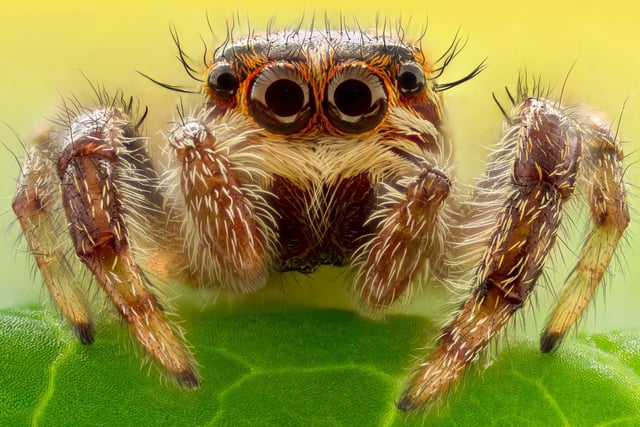The study from consumer genetics company 23andMe found that 37 per cent of British people have an excessive fear of something.
And while many of the most common were not surprising, including spiders, flying and snakes, others are less well know.
These include trypophobia (fear of clustered small holes, bumps or patterns), arachibutyrophobia (fear of peanut butter sticking to the roof of your mouth), globophobia (fear of balloons) and alliumphobia (fear of garlic).
One in five sufferers say their phobias have become worse with age, with the average age of first experiencing them being 12 years old.
Some experts believe that some fears, including of public speaking and height, could be genetic.
Alisa Lehman, Senior Product Scientist at 23andMe, explained: “From spiders to belly buttons, it’s clear that Brits suffer from a wide range of phobias, and whilst many of these may be learned, we have explored the relationship between certain phobias and genetics to see whether our DNA can influence our propensity to suffer from these.
"Interestingly, our scientists found over 800 genetic markers associated with the fear of public speaking, revealing that 17 per cent of Brits are predisposed to this fear, based on their genetics.
" Separately, we also found that around a third of Brits are more likely than average to have a fear of heights, based on their DNA.
"This phobia is thought to arise from the brain missing visual input from nearby objects to help maintain balance.”
Most people see phobia as being perfectly normal, with 70 per cent believing it is perfectly reasonable to be concerned about unusual objects or things.
Meanwhile a fifth they are too embarrassed to tell their friends and family about their phobias, and the same amount have sought, or plan to seek, help from a professional to overcome their debilitating fears.
Here are the 25 most common phobias in the UK.
A message from the Editor:
Thank you for reading this article. We're more reliant on your support than ever as the shift in consumer habits brought about by Coronavirus impacts our advertisers.
If you haven't already, please consider supporting our trusted, fact-checked journalism by taking out a digital subscription.

1. Acrophobia
Acrophobia, the fear of heights, is the UK's most common phobia - 37 per cent of us suffer from it. Photo: Canva/Getty Images

2. Arachnophobia
31 per cent of us have arachnophobia - the fear of spiders. Photo: Canva/Getty Images

3. Claustrophia
Claustrophia - the fear of confined spaces - affects 23 per cent of Brits. Photo: Canva/Getty Images

4. Glossophobia
Giving a speech is a nightmare for many of us - 23 per cent have glossophobia, or a fear of public speaking. Photo: Canva/Getty Images

